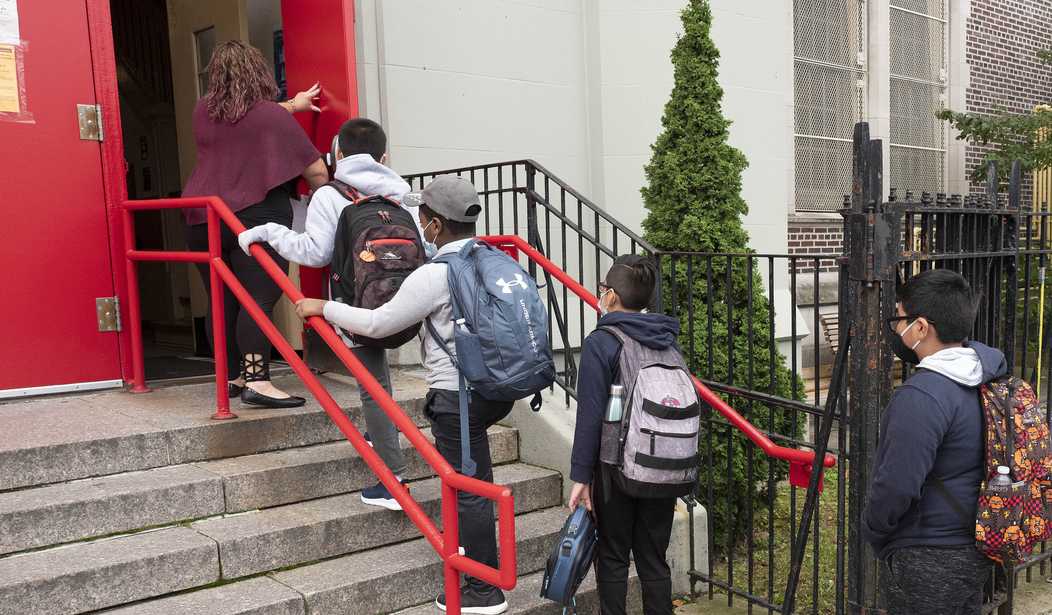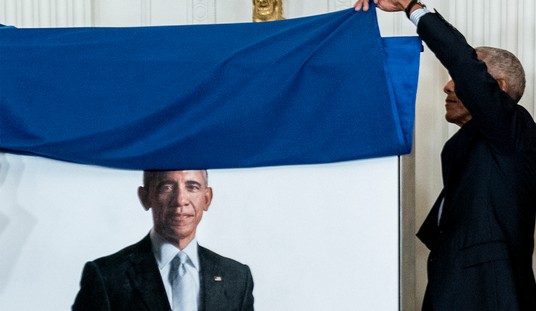The Washington Post made a major discovery today. School closures disrupt learning. You may recall a video of two doctors being removed from the internet for talking about the harm to children specifically and urging an end to lockdowns. Or child psychologists with America’s Frontline Doctors talking about the learning and social impacts of school closures and other pandemic response measures.
You may also recall President Trump and Senator Rand Paul advocating for schools to reopen based on other developed countries’ experiences. Or the much-maligned Dr. Scott Atlas and Dr. Jay Bhattacharya advocating for the same. Even CDC Director Dr. Robert Redfield said closed schools were a greater public health risk for children than COVID-19 and his agency issued guidelines to do so safely. Secretary of Education Betsy DeVos echoed the importance of getting back to in-person instruction.
Most other industrialized nations reopened schools before children returned to classes in the United States. Their experience mirrored earlier research and reporting from a number of studies. Even our own COVID-19 monitoring tells the same story. Children rarely suffer from serious illness or die of COVID-19, and they rarely transmit the disease to adults. The death rates for those under 60 are also not significant and are decreasing with better treatment.
All of this information was drowned out by media darling Dr. Anthony Fauci, who refused to admit that the science supported schools’ reopening. At least until after the election. As schools in Georgia and Florida reopened, the corporate media, including The Washington Post, began shrieking.
The Washington Post wrote prolifically about Georgia, breathlessly reporting “outbreaks” that were pure fiction. In at least one such “outbreak” in a school district in August, teachers were exposed in the community and had not returned yet. The Washington Post lambasted state officials and predicted doom and gloom. They were equally critical of Florida. The media campaign was so effective that many parents joined with radical teachers’ unions in calling for distance learning rather than in-person teaching.
Now, as everyone on the other side of the debate predicted, it has been a disaster. According to The Washington Post, McKinsey has released one of several studies in the last few weeks. These clearly demonstrate that all children who are relegated to distance learning are suffering. But the impacts are even greater in specific populations:
The evidence of learning losses comes from two primary sources. There is national data on back-to-school test results, such as the McKinsey analysis, which measure how much regression took place in the spring by comparing results to prior years.
The second source is school districts themselves, which have reported spikes in the number of failing grades given by teachers this fall, evidence that the learning losses are continuing. The sharpest increases have been for Black and Latino students, those in low-income families, students with disabilities and those learning English.
Anyone with two brain cells that knock together could have seen that one coming. But a presidential election year, coupled with a healthy dose of Trump Derangement Syndrome level-eleventy in the media, had them reflexively opposing anything President Trump tried to do, even when it was clear at that the time children needed to return to school.
The “follow the science” crowd couldn’t even locate a study or look at international results to determine what would benefit your children. The Washington Post and nearly every other outlet praised the teachers’ unions and had an agenda beyond giving parents the information they needed to make good decisions. It was all panic, all the time, even in the face of data and research. Even college applications are down 16% this year.
This paragraph is gobsmacking, given that we have entire states and most of the world back in school:
Some say the answer is to get more children back to in-person school. Limited data suggests open schools have not been a significant source of contagion, but the high coronavirus infection rates across the country have halted plans for a return in some districts and hardened fears of going back among many teachers and parents.
Some have always been saying the answer was to get kids back to school. And the data they relied on is far from limited. This is some adorable CYA from the follow-the-science crowd. Maybe if they were honest, remotely curious, or had any shame, they would calm teacher and parental fears with the correct information. But they won’t.
At least not until Joe Biden is inaugurated. The mental-health impacts of school closures on our children? Not a priority. A generation that will feel the impact of detrimental panic-driven public policy aided by the media? Oh well. It was always about Orange Man Bad. It will be interesting to see the complete U-turn these narratives take in early 2021. Yet, they will still wonder why we don’t trust them.










Join the conversation as a VIP Member